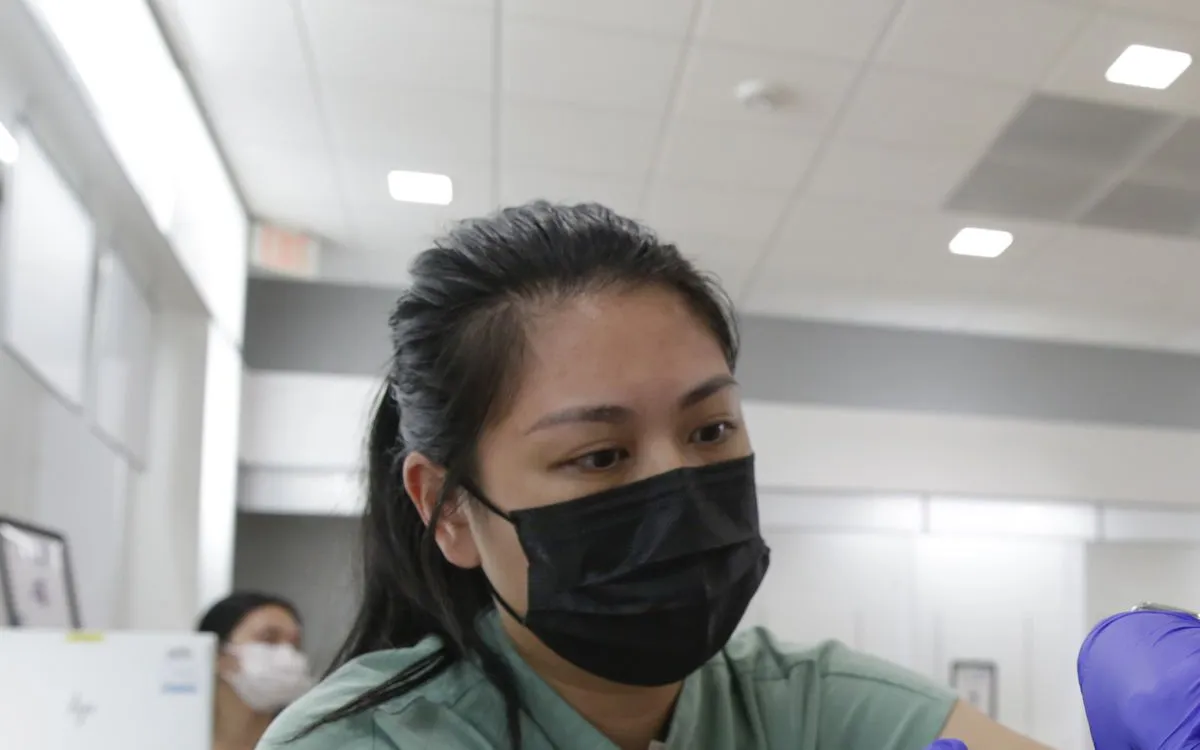
As the cold weather approaches, mask requirements are making a comeback in various health care settings across the Bay Area. Local health officials are preparing for the annual surge in respiratory illnesses, including COVID-19, influenza, and RSV (respiratory syncytial virus), which typically peaks during the winter months. Starting on November 1, several counties—such as Contra Costa, Santa Clara, Sonoma, Napa, San Mateo, and Santa Cruz—will mandate that health care workers, and in some cases patients and visitors, wear masks in designated patient care areas throughout the winter and early spring.
The primary goal of these seasonal measures is to protect vulnerable patients and to prevent outbreaks that could potentially overwhelm hospitals. In Contra Costa County, a standing order from County Health Officer Dr. Ori Tzvieli mandates that health care personnel wear masks in enclosed spaces where patients are present from November 1 through March 31. Dr. Tzvieli stated that this order is designed to “provide a layer of protection to patients against COVID-19, influenza, respiratory syncytial virus, and other viral infections.”
Santa Clara County's regulations extend further by requiring all individuals—workers, patients, and visitors—to wear masks in all “patient care areas” of hospitals, clinics, and nursing homes. Health officials cite data indicating that respiratory viruses pose a significant risk to vulnerable patients during peak months, justifying the need for this precaution.
In contrast, Sonoma County is adopting a more focused approach this year, emphasizing long-term care and senior facilities where outbreaks have historically been prevalent. Dr. Karen Smith, the county’s health officer, remarked, “The risk to vulnerable patients of COVID, flu, and other respiratory viruses in health care facilities remains significant, so it continues to be important for face masks to be used in patient care areas when seasonal risk of exposure to one or more viruses is high.”
Napa County is also maintaining its standing masking order, which applies annually from November 1 through March 31. Health Officer Dr. Christine Wu reiterated this policy in an October notice to hospitals, psychiatric facilities, and skilled nursing homes, emphasizing the importance of masking for all health care workers, regardless of their vaccination status. “The goal is to protect infants, older adults, pregnant women, and people with weakened immune systems,” she explained, noting that while vaccination is crucial, “facial coverings are a proven method for protecting all people, including the most vulnerable.”
In Santa Cruz County, masks will be mandatory in acute care facilities until March 31. Public Health Officer Dr. Lisa Hernandez highlighted the straightforward aim of this requirement: “These respiratory viruses can cause serious illness, particularly in vulnerable groups such as infants, older adults, pregnant individuals, and those with weakened immune systems. This order aims to reduce the spread of these viruses and protect those most at risk from severe outcomes, including hospitalization and death.”
On the other hand, San Mateo County will implement a new masking order that applies only to staff, workers, and visitors in skilled nursing facilities’ patient care areas. This order takes effect on November 1 and will remain in place until March 31, according to spokesperson Preston Merchant.
Interestingly, Alameda and Solano counties have opted not to issue a mask mandate this season. Instead, officials in Solano County are recommending that health care providers “use optimum protections” during patient interactions while encouraging residents to stay updated on vaccinations through their health care providers or pharmacies. They also provide assistance to uninsured residents seeking coverage through programs like Medi-Cal.
Austin Wingate, public information manager for Alameda County, stated that the public health department “will recommend masks in health care settings.” Meanwhile, officials in San Francisco and Marin counties have yet to release guidance for the upcoming season. It's important to note that these mask requirements are specific to health care settings and do not signify a return to broader public mask mandates.
As flu and COVID-19 activity is expected to rise during the winter months, health officials are urging residents to stay current on vaccinations and take necessary precautions to protect themselves and those around them during this critical time.